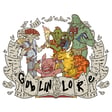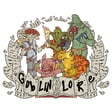
Episode 118: I hadn't really thought of that
Hello Podwalkers, and welcome back to the Goblin Lore Podcast! Today on the cast Alex sits down with returning guest Reinhardt Suarez to talk about two pieces of Magic fiction that Reinhardt wrote. Reinhardt was on the show back in episode 78 to discuss what Science Fiction in the Multiverse has looked like to date, and potential future directions. Since that time Reinhardt has worked with Wizards on pieces specifically for Strixhaven!! Discussion today looks at his experiences working with Wizards while writing those two pieces, and about writing in general. As usual the goblins meander through a number of topics, including the value of editors, dealing with imposter syndrome as a writer (or creative in general) and some differences between self publishing and traditional publishing. It’s a heavy craft-centric episode, we hope you enjoy it!
Reinhardt can be found at: https://www.thereinhardtexperience.com/
The stories Reinhardt wrote for Strixhaven are: https://magic.wizards.com/en/articles/archive/magic-story/chains-bind-2021-04-09 https://magic.wizards.com/en/articles/archive/magic-story/mentor-2021-04-16
Please also check out Innocent Chizaram Ilo’s story that Reinhardt talked about during the cast: https://magic.wizards.com/en/articles/archive/magic-story/blue-green-ribbons-2021-04-23
Lastly, if you enjoy our craft heavy episodes (and you are reading this on or before June 18th, 2021) please check out 4th Street Fantasy Convention https://4thstreetfantasy.com/2021-full-schedule/
We also are proud to have partnered with Grinding Coffee Co a black, LGBT+ affiliated and owned, coffee business that is aimed at providing coffee to gamers. You can read more about their mission here. You can use our partner code for discounted coffee!
____________________________________________
As promised, we plan to keep these Mental Health Links available moving forward too. For general Mental Health the National Alliance on Mental Illness (NAMI) has great resources for people struggling with mental health concerns as well as their families. We also want to draw attention to this article on stigma from NAMI's site.
If you’re thinking about suicide or just need someone to talk to right now, you can get support from any of the resources below.
- National Suicide Prevention Lifeline: 1-800-273-TALK (8255)
- Veteran's can Press 1 at anytime to be taken to the Veteran's Line
- Crisis Text Line: Text HOME to 741-741
- International suicide hotlines: A comprehensive resource list for people outside the US.
- IMAlive: Click Chat Now to access a live online network of volunteers through instant messaging.
- TrevorLifeline, TrevorChat, and TrevorText (LGBTQ+ crisis support): 1-866-488-7386, or text

